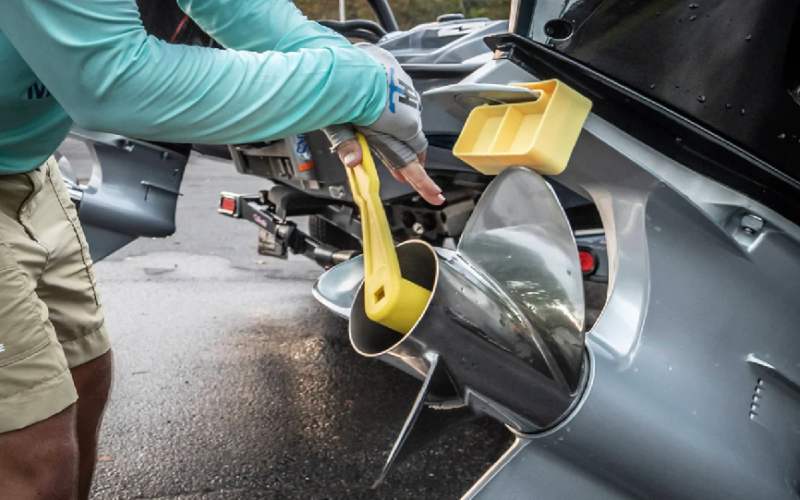RV maintenance is essential year-round to keep your trailer or motorhome in good shape. Use the following tips to perform RV maintenance before each monthly, seasonal, and annual trip. Drain and add non-toxic RV antifreeze to the water system to protect it from freezing temperatures. Also, use a water treatment product that prevents clogs and controls odors.
Check the Roof
Just because your RV has a single-piece roof membrane doesn’t mean it’s free of seams and seals. Those places can also become entry points for water leaks.
Keeping your RV’s roof clean and checking for damage should be part of your maintenance routine. Whether you use a stable ladder or call in the professionals, it’s essential to inspect your RV roof regularly. Be sure to check the roof vents, skylights, and roof accessories like satellite antennas. Also, remember to re-seal the roof seams and caulking whenever necessary. If tackling this project on your own sounds too risky, consider having a marine RV maintenance do it for you.
Check the Electrical System
RV owners know that an unexpected breakdown can quickly ruin an extended vacation. Proper maintenance can prevent problems before they start.
The heart of an RV’s electrical system is the inverter, which converts DC power from the batteries to AC power that powers outlets and appliances. Using a multimeter and the following two tests can help you determine if the inverter is working correctly. Ensure the propane tanks are clean and all safety equipment has fresh batteries, especially smoke and carbon monoxide detectors. Keeping up with the RV maintenance checklist can help avoid costly repairs and make your next trip more enjoyable.
Check the Plumbing System
Whether your RV is fully stocked or not, it’s always a good idea to have the plumbing system in tip-top shape. It includes using RV-safe toilet chemicals to prevent clogs and odors, monitoring fresh water tank levels, emptying waste tanks regularly, and cleaning the black tank. It would help if you also drained the non-toxic RV antifreeze that may have been used to winterize your RV and flush out the system before resuming use, especially when making camp. Return the bypass valve on the water heater to its original position. It will ensure that your water heater is working correctly.
Check the Interior
RV maintenance is essential to ensure your trailer or motorhome is in good condition before setting out on an adventure. Inspecting safety equipment such as smoke and carbon monoxide detectors is advisable. Leaks are another common problem you should be aware of before hitting the road. A few simple checks can help you identify and repair leaks before they have a chance to cause severe water damage. Propane tanks are another area to check for leaks. A simple test of spraying soapy water on gas connections can reveal the presence of a leak.
Check the Battery
You should check your battery’s water levels regularly to ensure they are complete. The battery generates power through ion transfer and exchange and requires water. You can also monitor the state of charge using a digital multimeter or a hydrometer. It is crucial for extending the lifespan of your battery. You can also prevent a battery from swelling by storing it in a cool, dry place and checking the terminals regularly for corrosion. Swollen batteries are dangerous and may cause fires. Lithium batteries are the top choice for many RVers because of their long lifespans and lower maintenance requirements than traditional lead-acid and AGM batteries.
Check the Tires
The tires on an RV are exposed to all types of weather and sun damage. Adding tire covers to your storage area helps extend their life, as does properly inflating them when traveling. Overinflated tires are dangerous, causing heat buildup that could exceed their endurance, and underinflated tires reduce the amount of tread contact with the road surface, compromising traction, capability, and handling. To avoid blowouts, check the air pressure of the RV’s tires regularly with a digital tire pressure gauge (use when the tires are cold to get an accurate reading) and inflate them to their stated PSI. Blowouts are scary, unsafe, and expensive.

